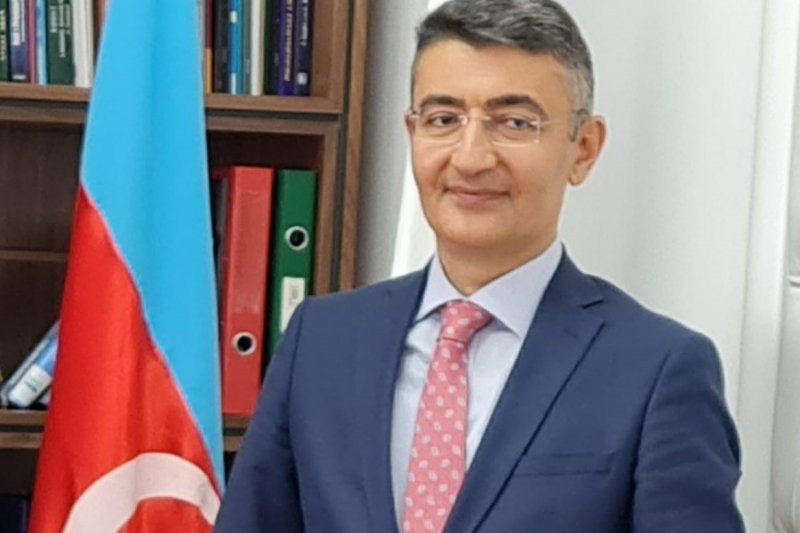Multiculturalism in Azerbaijan as Common Trait with Albania
Multiculturalism is a universally recognized principle of peaceful coexistence, based on the tolerance of relations between different cultures. The characteristic feature of multiculturalism is tolerance.
Azerbaijan, being a space where different civilizations intersect, has been known for centuries as a place where an environment of national and cultural diversity has been formed, where representatives of different nationalities and faiths live in conditions of peace, prosperity, mutual understanding and dialogue. Generosity regarding the characteristics of different peoples, nationalities, and religions is inherent in the mentality of the people of Azerbaijan. At all historical stages in the territory of Azerbaijan, close relations were established between ethnic and religious communities; facts of discrimination on national, religious, and racial grounds have not been observed. For Azerbaijan, multiculturalism is not only a national policy, but also a way of life.
Azerbaijan, where the majority of the population is Shia Muslim, is also called home by other ethnic and religious groups, including Christians and Jews. Respect and tolerance for national minorities played an important role in the development of the country in antiquity, in the era of the Great Silk Road, and now. During the period of the Soviet Union and since Azerbaijan gained its independence, minorities have always been represented in the republic's government.
Currently, Baku alone is home to several distinct cultural communities, including Russians, Ukrainians, Laks, Lezgins, Slavs, Tats, Tatars, Georgians, Ingils, Talyshes, Avars, Meskhetian Turks, European and Highland Jews, Germans, and Greeks. I hope that ethnic Armenians will return to Azerbaijan and reestablish their community as well. They have always been well-integrated into the society and realities of Azerbaijan, and I believe they can once again be a valuable part of Azerbaijan's multi-ethnic life. In general, such communities exist in all areas where ethnic minorities live densely. During a period marked by phenomena such as xenophobia and religious intolerance in various regions of the world, Azerbaijan and Albania have created unique models of interreligious dialogue and tolerance. These models can serve as special examples for many countries around the world and the global community. Today, over 90% of the country's population is Muslim, and along with mosques, there are also many churches and synagogues.
A wonderful example of Azerbaijan's tolerance is the warm and fraternal attitude towards the representatives of the country's Jewish community. It is worth noting the fact that there has never been anti-Semitism in Azerbaijan and Jews have never felt like foreigners. The ancient village "KrasnayaSloboda", the unique place of compact settlement of Jews in the world, is the real pride of Azerbaijan. Several synagogues and the largest Jewish educational center in the South Caucasus were also built in Azerbaijan.
Thanks to the planned policy of the head of state, today Azerbaijan presents its model of multiculturalism to the world. On February 28, 2014, the Institute of the State Counselor of the Republic of Azerbaijan for interethnic, interreligious, and multiculturalism issues was established, and on May 15, 2014, by the Decree of President Ilham Aliyev, the Baku International Center for Multiculturalism was established, so far the only in the world.
In addition, since 2008, every two years Baku has hosted the International Forum for Intercultural Dialogue, which is a platform for the coordination of international efforts aimed at strengthening tolerance and mutual understanding, the fight against discrimination, extremism, and xenophobia in society. The next forum will be held this year in Baku from May 1-3.
In recognition of Azerbaijan's efforts in promoting the values of multiculturalism and intercultural dialogue, the 7th UN Global Forum on the Alliance of Civilizations was held in Baku on April 25-27, 2016. During the Forum, issues related to new challenges and threats, including the prevention of discrimination, xenophobia, racism, and the fight against aggressive separatism, as well as measures aimed at strengthening intercultural and interreligious dialogue and promoting multiculturalism.
The activities of the HeydarAliyev Foundation make a great contribution to the development of multiculturalism and tolerance in the republic. Within the framework of the project "Addressing Tolerance - Azerbaijan", the reconstruction and restoration of many mosques, churches, and temples both in Azerbaijan and abroad is being carried out. Based on a bilateral agreement for the restoration of the Roman catacombs, signed between the Foundation and the Holy See, the catacombs of Saints Marcellinus and Peter were restored.
Also, the Foundation provided financial assistance for the restoration of five window tracks of the Strasbourg Cathedral dating back to the 14th century, carried out the restoration of ancient monuments included in the World Heritage List since 1979, preserved in the park of the Palace of Versailles in Paris and helped restore seven churches belonging to the X-XII century in the Orne department in France. The architectural and museal reserve "Trapezitsa", located in the Bulgarian city of Veliko Tarnovo, was also restored with the support of the Heydar Aliyev Foundation. The foundation carried out the conservation and restoration of the walls of the monument, the creation of a tourist alley, and a Cultural Heritage Center, as well as the repair and conservation of the three medieval churches located in this territory. Support was provided for the restoration of the Capitoline Museum in Rome.
Azerbaijan, playing the role of a bridge between two different civilizations, increases its authority in both the eastern and western hemispheres. This idea is sufficiently reflected in the foreign policy of Azerbaijan, as a full member of organizations such as the UN, OSCE, Council of Europe, and Organization of Islamic Cooperation. Azerbaijan also attaches importance to cooperation with European countries in both bilateral and multilateral ways, based on mutual interests and equal partnership.
It is worth noting that multiculturalism, and religious, ethnic, and cultural tolerance are connecting similarities between Albania and Azerbaijan, offering better inclusion and additional space and incentives for cooperation.
*Ambassador of Azerbaijan to Albania













